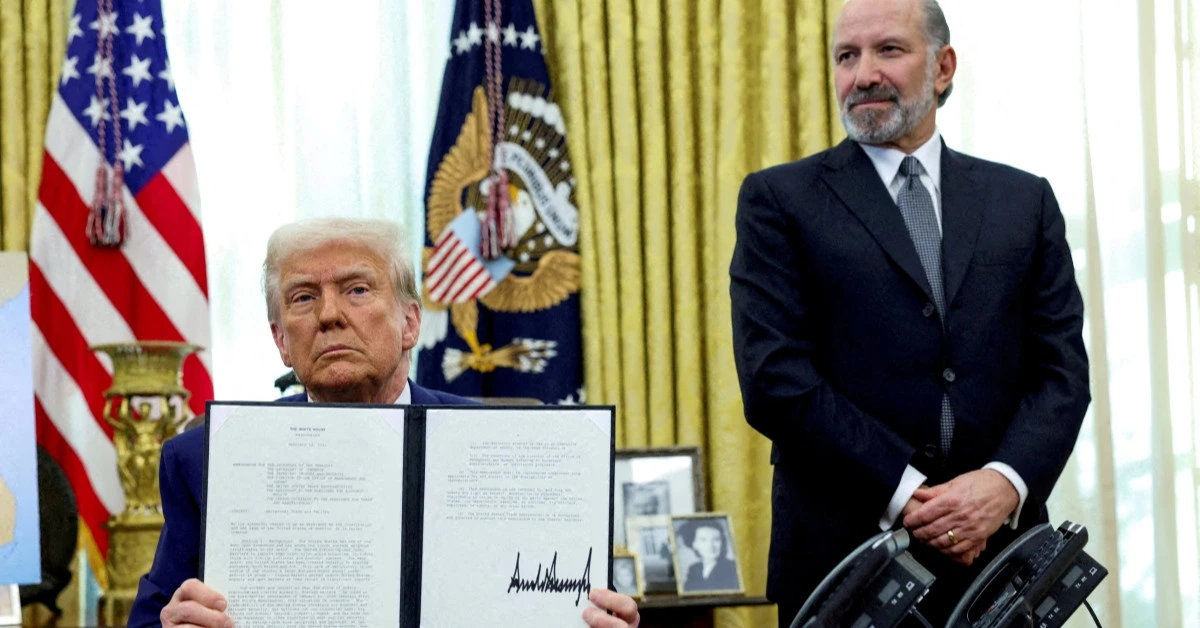
USA – President Donald Trump’s tariffs on imports from Europe, China, and Canada are causing significant concern within the biopharma sector.
A recent survey by the Biotechnology Innovation Organization (BIO) found that nearly 90% of its member companies depend on imported components for at least half of their FDA-approved products.
The industry fears that tariffs could disrupt the supply chain, increase costs, and hinder access to affordable medications.
According to the survey, 94% of biotech firms expect their manufacturing costs to rise sharply if tariffs are imposed on imports from the European Union.
Furthermore, 50% of respondents indicated they would need to find new outsourcing partners for research and manufacturing.
This process could delay the filing of new drug approvals and limit patient access to essential treatments.
BIO also found that 80% of companies would require at least 12 months to secure alternative suppliers, while 44% estimated it would take more than two years.
The Trump administration has been steadily escalating tariff threats across various industries, including biopharma.
Recently, it announced a 25% levy on cars and automotive components entering the US, effective April 2nd.
Additionally, a 20% tariff on all Chinese imports was introduced, a move that particularly affects the pharmaceutical sector since China is a significant supplier of ingredients and materials used in drug manufacturing. T
here are also threats of a flat 25% tariff on all pharma imports, with potential increases over time. The administration hinted at possible exemptions for companies willing to reshore manufacturing to the US.
Some major pharmaceutical companies have already responded. Eli Lilly and Johnson & Johnson publicly committed to investing in new manufacturing facilities within the United States.
However, BIO’s president and chief executive, John Crowley, warned that relocating manufacturing operations would be a lengthy and costly process.
“This survey demonstrates the far-reaching and potentially damaging impacts of the proposed tariffs on our biotechnology industry, on biomedical research, and on patients,” Crowley stated.
BIO supports policies that encourage reshoring manufacturing to the US and its allies, but Crowley emphasized that the transition could take years. He called for collaboration with the government to create incentives that would attract private sector investment in US biotech manufacturing.
“We look forward to working with the Administration and Congress to develop incentives and policies that drive private sector dollars to spur a renaissance of US biotech manufacturing,” he said.
In a separate but related development, Trump suggested that tariffs on China could be reduced if an agreement is reached to sell the US operations of ByteDance’s popular video-sharing app, TikTok.
With 170 million American users, the app has been a point of contention between the US and China, further complicating trade relations.
The escalating tariffs pose a real challenge for biotech firms that rely heavily on global supply chains.
The threat of increased costs and manufacturing delays has left many companies scrambling to find alternative suppliers, a process that could be lengthy and disruptive.
While the administration aims to encourage domestic manufacturing, the industry fears that hastily imposed tariffs could do more harm than good.
The biotech sector’s reliance on imported components highlights the complexities of modern pharmaceutical production.
Many of the raw materials and specialized chemicals required for drug manufacturing are sourced from countries like China, where production costs are lower.
Disrupting these supply chains could lead to higher prices for consumers and slow down the introduction of new, potentially life-saving treatments.
XRP HEALTHCARE L.L.C | License Number: 2312867.01 | Dubai | © Copyright 2025 | All Rights Reserved